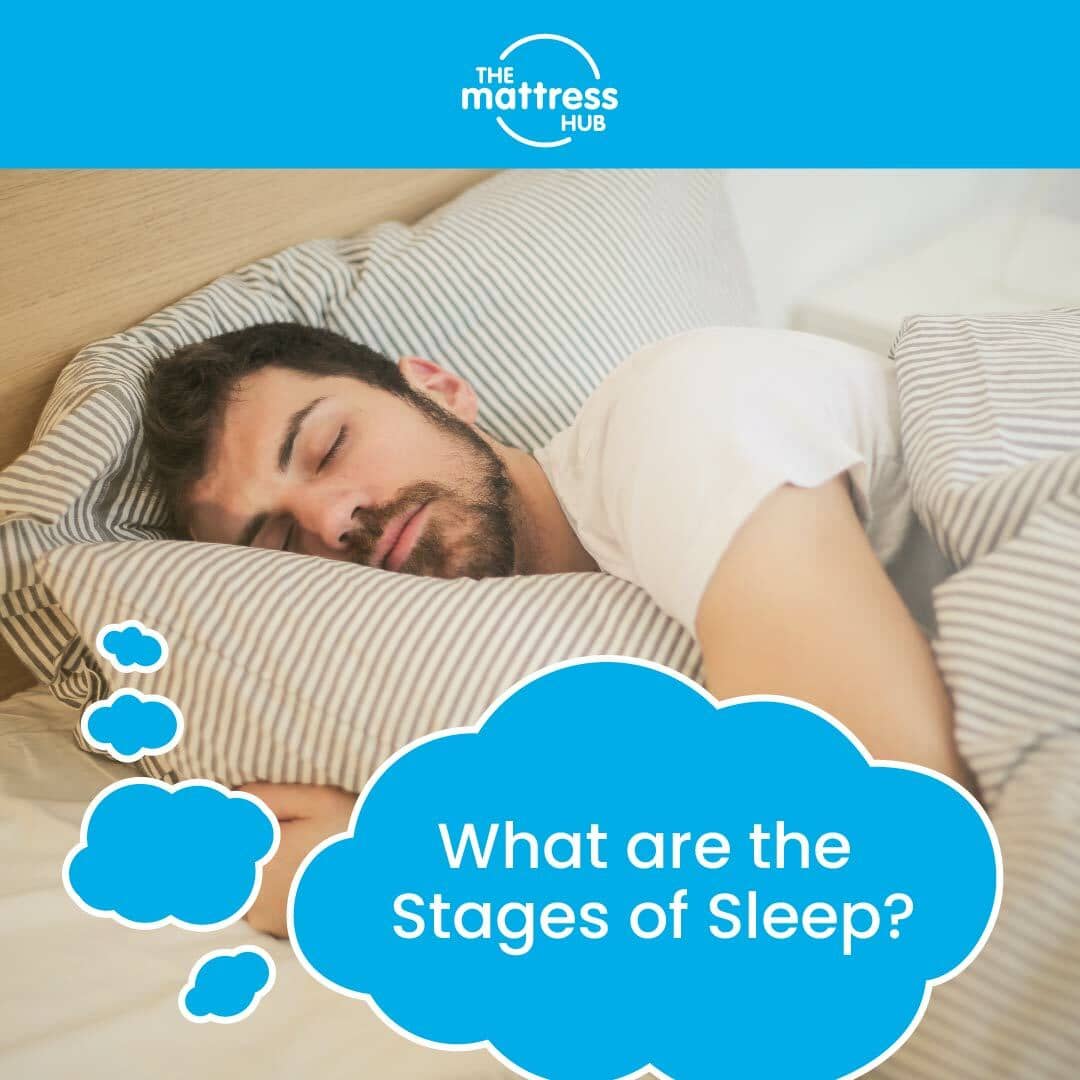What are the Stages of Sleep?

It’s no secret that sleep is important. When you sleep your brain resets and recuperates from the day and gets ready for the next day. While sleeping, you go through 4 different stages of sleep. The first 3 stages are considered non-rapid eye movement (NREM), and the final stage is your active sleep, called rapid-eye movement (REM). Every stage of sleep serves a distinct role in preserving your brain’s overall cognitive abilities, with certain stages also contributing to physical rejuvenation that promotes your well-being.
Stage one (N1), occurs when you first fall asleep. This is the shortest stage and typically only lasts 1-7 minutes. Your body hasn’t fully relaxed, but body and brain activities do start to slow down. In this stage, it’s easy to wake someone up, and they might even think they weren’t sleeping. But if left alone they will move into stage 2 quickly. During this stage of sleep, your brain is still relatively active and produces high amplitude theta waves. These are slow brain waves that normally occur in the brain’s frontal lobe.
Stage 2 (N2), can last for 10-25 minutes during the first sleep cycle and will become longer during the night. Typically a person will spend about half of their sleep in the N2 stage of sleep. This is a more subdued state where your body temperature lowers, you’re less aware of your surroundings, your eye movements cease, and your breathing and heart rate adopt a slower more regular rhythm. Your brain will also begin to produce bursts of rapid, rhythmic brain wave activity known as sleep spindles. This is thought to be a process where your brain gathers, consolidates, and filters new memories you acquired the previous day.
Stage 3 (N3), is also known as deep sleep. Once you have reached this stage of sleep, it’s extremely difficult to be woken up. Your body relaxes even more, and muscle tone, pulsing, and breathing rates decrease as well. This is also the stage where your body starts its physical repairs. This is the most important stage of restorative sleep and allows your body to recover and may also bolster your immune system. N3 commonly lasts for 20-40 minutes, and you will spend the most time in deep sleep during the first half of the night. This is also the stage of sleep where sleepwalking can typically occur.
Stage 4 (REM), is where your brain activity will start to pick up to levels that resemble its activity when you’re awake. REM sleep begins around 90 minutes after falling asleep. While in this stage of sleep, your brain’s activity increases, your body is relaxed and immobilized, you breathe faster and irregularly, you dream, and your eyes move rapidly. As the night goes on, REM stages get longer while NREM stages are shorter. You will spend around 25% of your sleep in the REM stage. During this time your brain will turn information into memory, making it important for learning.
Your sleep cycle doesn’t just go from stage 1-4 one time. You start in N1, move to N2, N3, REM, then back to N2, and start the cycle all over again to repeat it 4-5 times. If you don’t spend enough time in each sleep stage, or you break the sleep cycle it can affect you in various ways.
Making sure you have a healthy sleep cycle and atmosphere that promotes good sleep is important for your overall health. One way to ensure you are getting through all of the sleep cycles is to have a mattress that is supportive and comfortable. When you sleep on a mattress that doesn’t adapt to your sleep style, is old and lumpy, or doesn’t offer support as you sleep it can affect the sleep cycle. Stop by one of The Mattress Hub’s 13 locations or visit our website to find a mattress that will help you sleep well, live well, and change the way you sleep forever.